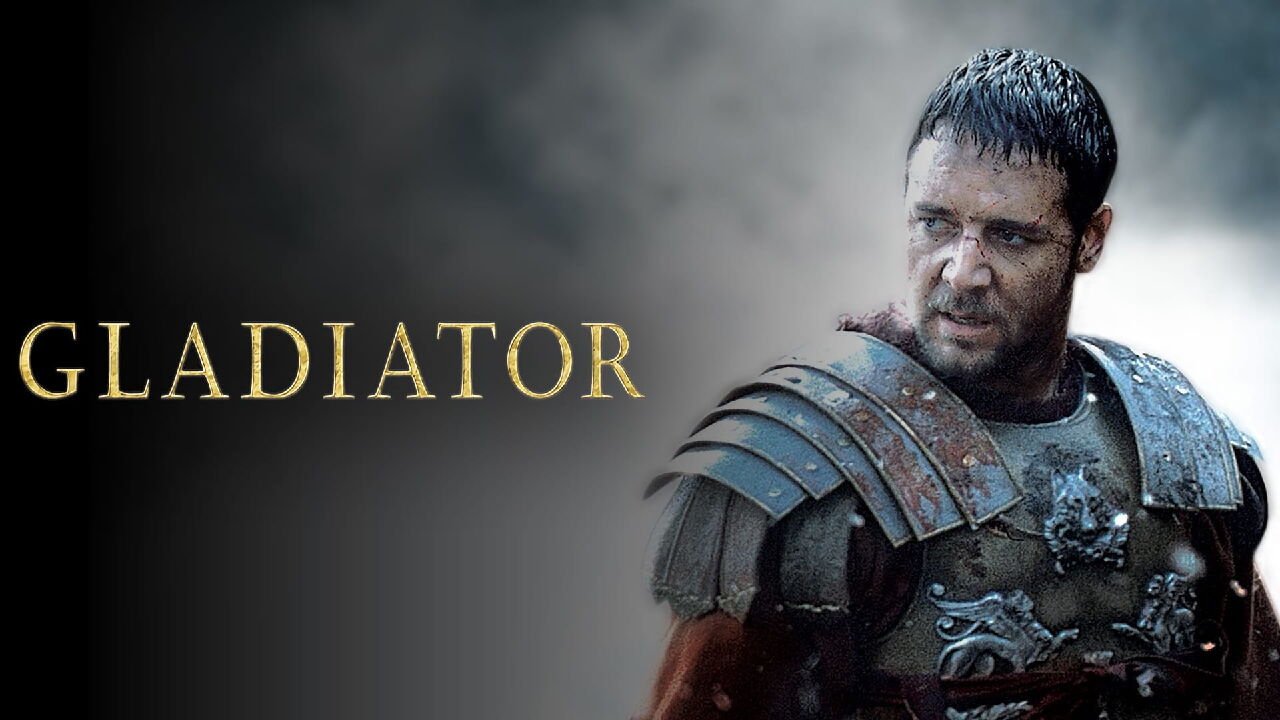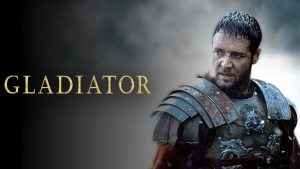Gladiator (2000

Review: Gladiator (2000) ⚔️
Introduction
Released in 2000, Gladiator is a sweeping historical epic directed by Ridley Scott that has become a classic of the action and drama genres. Set in Ancient Rome, the film tells the story of Maximus Decimus Meridius, a once-respected Roman general who is betrayed by Commodus (Joaquin Phoenix), the corrupt son of Emperor Marcus Aurelius (Richard Harris). After witnessing the brutal murder of his family, Maximus is forced into slavery and becomes a gladiator, using the arena as his path to revenge. With its high stakes, epic battles, and a deeply human story at its core, Gladiator is both an exhilarating action film and a compelling character study.
Plot and Performances
The plot of Gladiator is built on a familiar narrative of betrayal, revenge, and redemption, but it’s the depth of its characters that sets it apart. Russell Crowe, in his Oscar-winning role as Maximus, is nothing short of extraordinary. His portrayal of a man stripped of everything he holds dear, yet driven by an unyielding desire for justice, is raw and powerful. Crowe’s performance anchors the film, making Maximus’s personal journey of vengeance both emotionally gripping and morally complex.
Joaquin Phoenix delivers a chilling performance as the villainous Commodus, a man so consumed by jealousy and insecurity that he will stop at nothing to claim power. Phoenix brings a nuanced vulnerability to Commodus, portraying him not as a one-dimensional tyrant, but as a deeply troubled individual, struggling with his own demons.
The supporting cast, including Connie Nielsen as Lucilla (Commodus’s sister), Oliver Reed as Proximo (a seasoned gladiator trainer), and Djimon Hounsou as Juba (Maximus’s fellow gladiator), all contribute to the film’s rich tapestry of characters, each playing their part in the story’s emotional and thematic weight.
Cinematography and Music
Visually, Gladiator is nothing short of breathtaking. The film’s sweeping shots of the Roman Empire, its detailed reconstruction of the Colosseum, and its intense action sequences in the arena all serve to immerse the audience in the brutal world of Ancient Rome. The action is gritty and realistic, with the gladiatorial battles in particular being intense and visceral. Yet, even in its moments of violence, the film never loses sight of the personal stakes and the emotional journey of its central character.
The cinematography by John Mathieson is stunning, capturing both the grandeur of the Roman Empire and the intimate moments of Maximus’s struggle. The film’s color palette, often muted with sepia tones, enhances the feeling of a bygone era, and the contrast between the opulent palaces and the grimy gladiatorial pits is striking.
Hans Zimmer’s haunting score complements the film perfectly, with its stirring, emotional themes resonating throughout. The iconic Now We Are Free theme, in particular, becomes the emotional heartbeat of the film, underscoring Maximus’s journey of both loss and triumph.
Themes
At its heart, Gladiator explores themes of honor, duty, and revenge. Maximus’s pursuit of vengeance is both a personal and a moral battle, as he seeks to find justice for the wrongs done to him while holding on to his sense of humanity in a world that is often brutal and dehumanizing. The film also delves into the corrupting nature of power, as exemplified by Commodus’s pathological desire for control and approval. It asks profound questions about leadership, loyalty, and the cost of personal sacrifice.
The film also portrays a clash between the past and the future. Maximus’s loyalty to the ideals of the Roman Republic and his service to a just emperor, Marcus Aurelius, contrasts sharply with the corrupt imperial rule of Commodus, highlighting the moral decay of the Roman Empire at the time.
Conclusion
Gladiator is an emotionally resonant and visually spectacular film that blends thrilling action with a deeply moving human story. It is a perfect balance of character-driven drama and epic spectacle, with performances, direction, and technical craftsmanship that remain some of the best in modern cinema. With its timeless themes and unforgettable characters, Gladiator continues to stand as one of the defining films of the 21st century.











